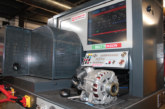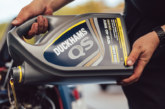
Close Brothers Motor Finance recently released its ‘Britain Under the Bonnet’ report, providing insight into driver buying habits and the factors that are affecting market figures.
More than two thirds of drivers (67%) say that they are less likely to purchase a diesel car after the VW scandal of 2015, according to a report by Close Brothers Motor Finance.
According to the SMMT, five years ago diesel powered motors were the nation’s vehicle of choice, commanding 52% of market share to petrol’s 45%. However, the VW emissions scandal and the government’s announcement of the ban of new fossil fuel cars by 2040 has dented consumer confidence in diesel cars, resulting in total sales plummeting steeply in 2017 to 38%.
The ‘Britain Under the Bonnet’ report looked at consumers’ attitudes and buying behaviours – along with views from dealerships across the country – to give a comprehensive view of the UK’s motor industry in 2018.
According to this study, the current consumer stance on diesel is corroborated by dealers, which are seeing these changes on the forecourt. Almost half (45%) said their customers have been shunning diesel cars as a result of the negative publicity around the vehicles and the tax hike that came into force in April.
Indeed, when asked what type of car they are most likely to opt for, just 13% of drivers said diesel. However, there is likely to be a lag before this shift affects the used car market as strongly. Previous research from the SMMT shows that there is a shift from new to used cars, as new car sales have continuously declined over the past year in comparison to used car sales.
The report also revealed that economic uncertainty has driven over a third of drivers (35%) – the equivalent of eight million Brits – to postpone or hold off buying a car altogether.
Despite this economic uncertainty, it was uncovered that 82% of current drivers are planning on purchasing a vehicle within the next three years; equating to almost 32 million new or used cars being sold in the UK by 2021. This is a significant increase on last year’s findings, when 71% of drivers planned to purchase a car in the next three years.
Despite Brexit being a sizeable contributing factor, it isn’t the only thing dampening consumer appetite – rising inflation (21%), the increasing cost of vehicles and fuel (32% and 29% respectively), and escalating vehicle taxes (27%) are other barriers to purchasing a car in 2018.
While there are clearly challenges for the motor industry, the report finds that the sector is optimistic about the year ahead. 95% of dealers across the country said they expect their business to grow in 2018, a huge increase from last year’s 63%. This is likely due to an anticipated rise in demand for used vehicles over the coming months, particularly as the report has found that four million (16%) will likely turn to the used car market, while 18% say they will be looking to buy a cheaper vehicle. 2017 saw the second highest number of used cars change hands in history, a trend that looks set to continue this year.







